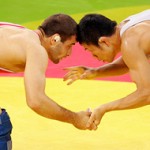 How do a lawyers become a good trial lawyers?
How do a lawyers become a good trial lawyers?
It’s tough to try a jury trial. Even in law school, most students don’t get courtroom experience. And the majority of practicing lawyers never go into a courtroom their entire lives.
As a criminal lawyer, I’ve tried over 100 cases before a jury. How did I learn?
I began my trial career as a Public Defender. I thought it would be murder cases, bank robberies, and other exciting trials. Instead, my first trial was a misdemeanor speeding ticket. My client was on a motorcycle and insisted that the was innocent. While questioning the jury, I asked a juror if she could presume the defendant innocent until proven guilty. Instead, she said, “Why didn’t he just pay the ticket?” I knew I was in for a tough time.
I was scared to death. Somehow, I stumbled through the trial to the end. There were no major screw-ups. The police had tracked his speeding by airplane!! In spite of my valiant efforts, he was found guilty.
While in law school I took a full year of trial practice classes. At the end of each semester, we held mock trials with volunteer jurors. We took different roles such as prosecutor and defense lawyer.
Before I tried my first “real” case as a Public Defender, I attended an intensive week-long trial lawyers boot camp. We studied things like: jury selection, direct and cross examination, how to present exhibits, and closing arguments. Teachers watched our performance, filmed us, and treated us like drill sergeants.
After the speeding trial, I went to another week of trial lawyers college. The combination of trying a real case while going to school helped me a lot.
One of the toughest parts of a trial is that a lawyer really tries two cases at once:
1. The case to the judge to get favorable legal rulings
2. The case to the jury to get a favorable verdict.
The skills required for each aspect are different. At the same time, your opponent is always taking shots at you. No matter how much a lawyer prepares, these are always weird things that pop-up in a trial. Witnesses change their stories. Critical evidence is not allowed by the judge. A trial lawyer must improvise on the spot.
It took me about seven years of trying cases before I felt competent. I also worked as a prosecutor. That forced me to learn skills on the other side of the table–very valuable.
Like many professions, it’s ultimately OJT—on the job training. That’s why I started with speeding tickets instead of murder cases.






